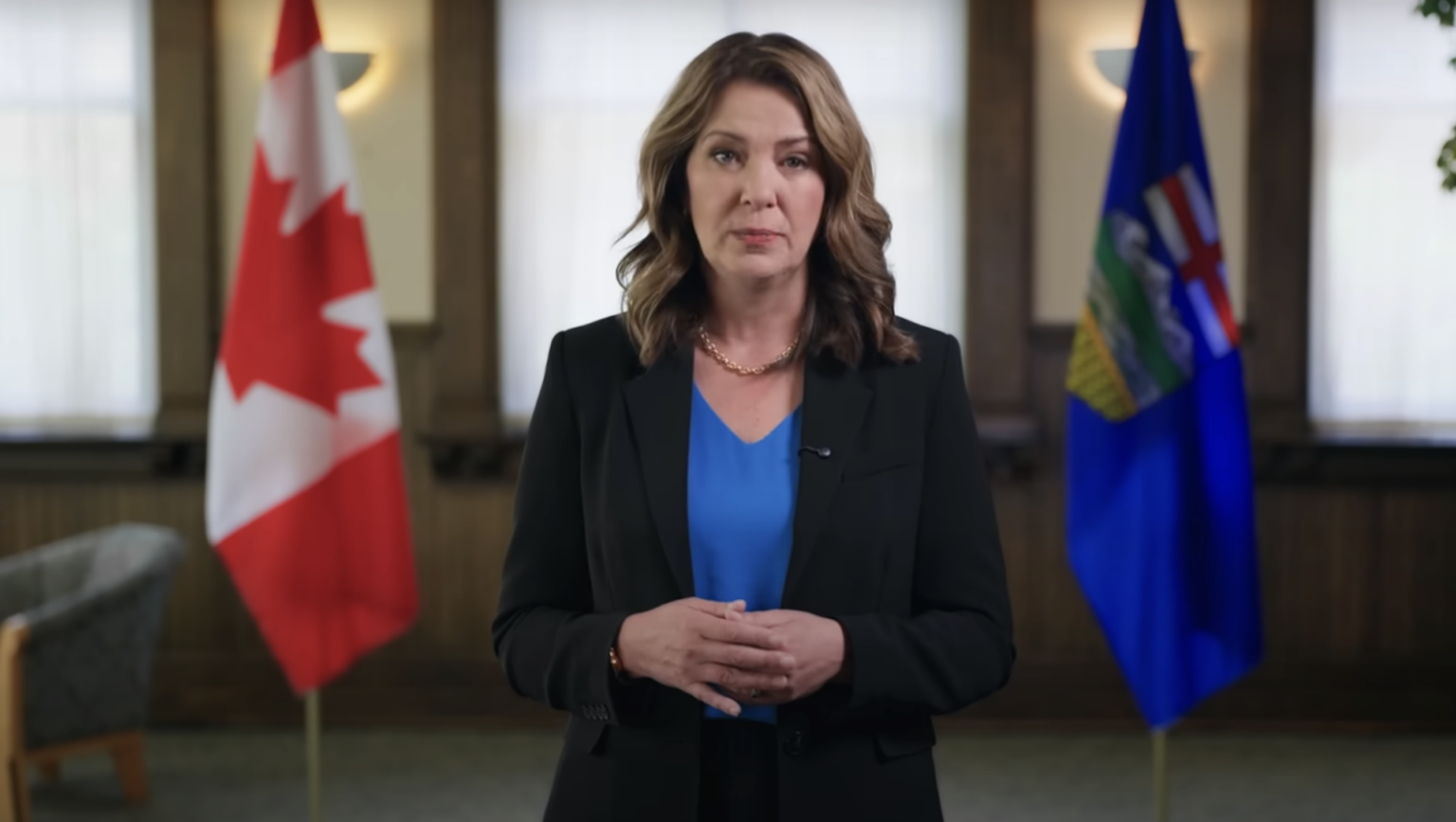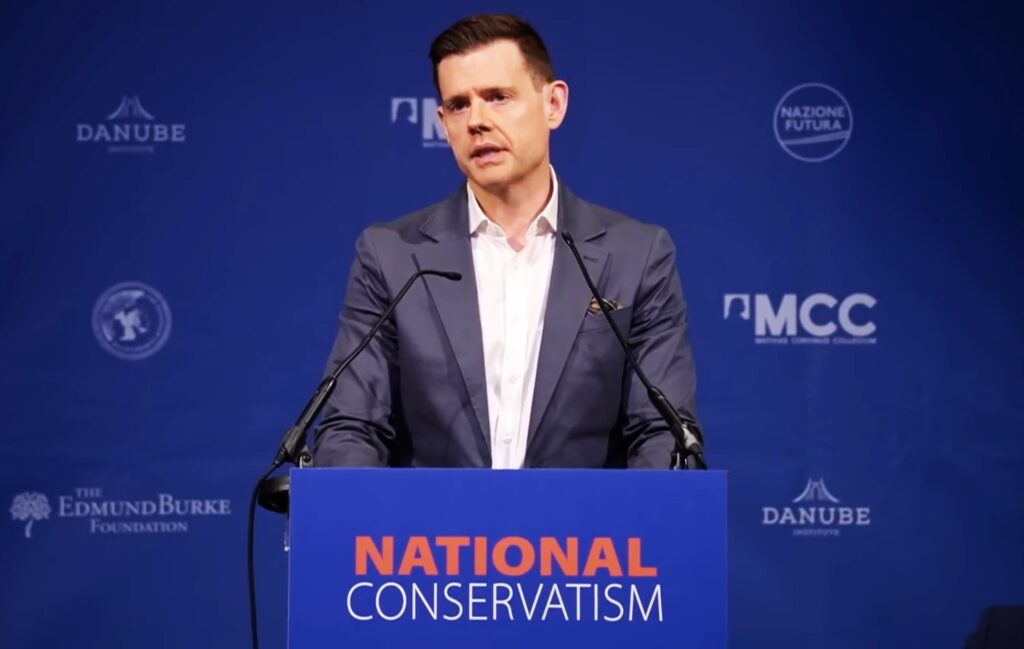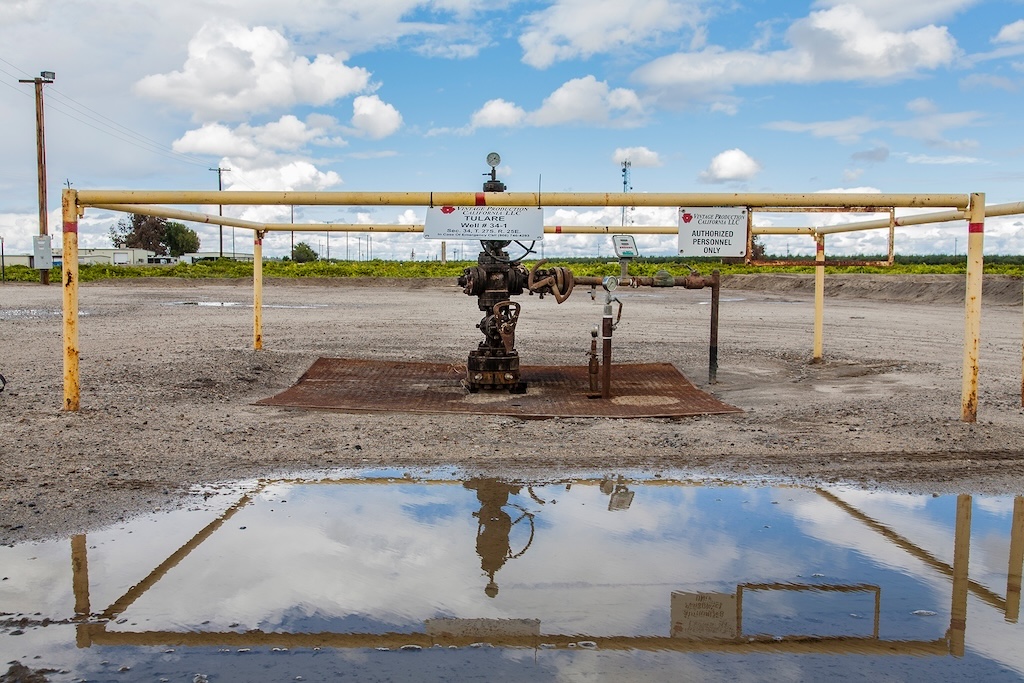Just hours before advocating for a resumption of coal mining in Alberta during a contentious town hall meeting, Premier Danielle Smith was arguing her province’s natural gas resources could help displace coal use abroad.
“By moving more natural gas, we can also help countries transition away from higher emitting fuels, such as coal,” Smith said during her keynote address to the Global Energy Show Canada, which took place in Calgary earlier this month.
“Anyone buying oil and gas from us can count on decades of reliable, responsibly produced supply,” the premier said. “And it comes with an added benefit, lower global emissions.”
Smith has repeatedly claimed that Alberta’s oil and natural gas resources are lowering global emissions by displacing coal, an idea that isn’t supported by facts. Research from the Natural Resources Defense Council indicates both that LNG is not displacing coal use, and that it may even be worse for the environment than coal when accounting for methane leaks and emissions associated with liquefaction. Research from the Institute for Energy Economics and Financial Analysis further indicates that major coal consumers, like China, are jumping over LNG altogether and transitioning directly to renewables.
Hours later, Premier Smith was in Fort Macleod, a small community near Lethbridge, to address the subject of resuming coal mining. Smith has favored the return of coal mining in the region despite a long-standing provincial moratorium and considerable public opposition.
Smith’s office declined to comment on the apparent contradiction. Energy minister Brian Jean’s office sent DeSmog a statement that did not directly address the mixed messaging, but reiterated the Alberta government’s stance on coal and LNG. “Canadian coal and other mining products are produced through some of the highest environmental and ethical standards in the world,” reads part of the statement.
Southern Alberta is the centre of the province’s shuttered coal industry. The Alberta New Democratic Party (ANDP) government of former premier Rachel Notley announced that Alberta would transition off of coal power in 2015, a goal that was accomplished ahead of schedule in 2024. Coal-fired power plants, such as the Genesse Generating Station west of Edmonton, converted to using natural gas.
Smith was not well-received at the town hall meeting, which was at capacity with about 500 people in attendance. The premier was heckled by protesters even before she entered the room, and the opposition continued within. Smith arrived with several cabinet ministers, including energy minister Brian Jean, environment minister Rebecca Schulz, and agriculture minister R.J. Sigurdson. The local provincial legislative representative Chelsae Petrovic also attended.
As reported by Canada’s National Observer, the majority of the 500 or so attendees opposed the government’s proposed policy changes concerning coal mining in the eastern slopes region. The governing United Conservative Party (UCP) has flip-flopped on its coal mining policies several times in the last five years. Those who vocally denounced the premier and her party included ranchers who depend on access to clean water that comes down from the Rockies. The principle concern was the possibility of selenium, a chemical byproduct of coal mining, entering the water supply. According to the Observer, Jean was both dismissive of these concerns and appeared to believe that selenium could easily be removed from the water, a point that was later refuted by retired University of Lethbridge geographer James Byrne.
Rocky Mountain Coal Ban
Premier Smith’s interest in coal mining is neither new nor limited to Fort Macleod. Roughly 100 kilometres to the west, Smith’s government has been supporting another contentious coal project, one that also reverses long standing policies against coal mining in Alberta.
From 1976 to 2020, the eastern slopes of the Rocky Mountains were protected from open-pit coal mining. Former UCP premier Jason Kenney reversed course and allowed coal mining in Alberta in 2020, but reversed himself in 2022 and reinstated the moratorium due to considerable public opposition. In December 2024 Brian Jean announced the province would update its coal mining policies, and a month later followed up by announcing the province would once again lift the moratorium on coal mining and exploration on the eastern slopes.
Though the moratorium has been lifted, several coal companies are suing the Alberta government for nearly $14 billion, compensation they argue for sunk costs and lost revenues. In addition, two separate lawsuits related to the coal ban and the rejected Grassy Mountain coal mine project were initiated by Australian billionaire Gina Rinehart, a noted climate change denier who has funded climate denial efforts. Rinehart is seeking $2 billion in compensation.
Though both the federal and Alberta governments rejected the proposed resumption of coal mining at Grassy Mountain in 2021 as not being the public interest, the Alberta Energy Regulator approved exploration permits for the project in late May. As reported by the Canadian Press, Jean explained that lifting the moratorium would “reduce regulatory confusion” regarding coal mining. Jean is reported to have instructed the regulator to give due consideration to mining companies that can demonstrate they have a plan in place to prevent selenium from infiltrating into watersheds. However, it was further reported that the government’s policy in this regard has not been fully developed or implemented.
When Jean announced the end of the moratorium, Smith mentioned these lawsuits as justification, indicating lifting the moratorium was necessary to protect taxpayers from the lawsuits. Northback Holdings, which owns the Grassy Mountain mine, is a subsidiary of Gina Rinehart’s Hancock Prospecting.
However, a Canadian Press report from April 2024 revealed that Alberta’s UCP government had in fact been talking with the coal industry for some time before any plans to resume coal mining were made public. Documents obtained through Access to Information laws indicate that the UCP were in fact proposing to eliminate the moratorium as early as October 2019, just six months after they took office, and seven months before announcing their proposal to Albertans. The same documents revealed that while the UCP government was in regular contact with interested parties, such as the Coal Association of Canada, they had not contacted affected municipalities, First Nations, nor environmental groups. More recently, CBC News reported that the recommendations and reports of a five-person Alberta coal policy committee — set up by former UCP energy minister Sonya Savage in 2021 to consult the public on the future of coal mining in the province — seem to have been completely ignored by the current government in its decision to reverse the moratorium.
Alberta’s Dirty Flip Flop
Despite UCP governments flip-flopping on the issue several times in recent years, public opposition to coal mining in southern Alberta is strong. As evidenced by multiple reports from the Fort Macleod town hall meeting, the overwhelming majority of citizens in attendance opposed the plan. Smith and her ministers were repeatedly heckled and shouted down by angry protesters, while others held placards reading “lie” or “false.”
While the majority of people in attendance at the UCP town hall meeting were unequivocally opposed to the prospect of resuming mining operations in the eastern slopes, political advertising in favour of coal mining may give a very different impression of popular opinion. The region near the mine was subjected to at least two advertising blitzes in the run-up to a non-binding plebiscite held in late-November 2024 on whether mining should resume. 72 percent of residents in Crowsnest Pass voted in favour. As previously reported by DeSmog and the St. Albert Gazette, an astroturfing organization called Citizens Supportive of Crowsnest Coal, which was active in soliciting public support for the resumption of mining, received support from Jarret Coels a campaign manager associated with a project called Energy United, itself a project of Maple Leaf Strategies.
One of Maple Leaf Strategies’ directors — Cole David Schulz — is the husband of Alberta environment minister Rebecca Schulz.
Another advertising campaign appears to have been directed by Northback Holding Corp., with assistance from Debunk Inc., an advertising firm. A recent investigation by Canada’s National Observer suggests that this campaign likely spent far more money than was officially reported by Northback Holding Corp.
The Globe and Mail reported Smith as saying “If we are not prepared to look and find middle-ground solutions to allow for industries to proceed while reducing our environmental footprint, you’re going to find that different industries become the next on the hit list,” possibly alluding to her belief Alberta’s oil and gas industry is threatened. Smith had also reiterated her belief coal mining in the eastern slopes could proceed in an environmentally-friendly fashion, using the term “responsible development.”
While the coal to be mined is metallurgical coal — also known as coking coal and used in the production of steel — it nonetheless carries its own environmental problems and exacerbates climate change. While mining any type of coal carries its own carbon dioxide emissions, and selenium leakage into watersheds may destroy fish and wildlife populations, of particular concern is coal mine methane (CMM), which is a major contributing factor to climate change. According to a 2023 report from Ember, 97 percent of CMM emissions aren’t measured, could be twice as high as reported by governments, and, if they represented their own country, would be the third highest emitter on Earth. According to UN data, coal mines release 30.5 million tonnes of methane each year, and methane is 82.5 percent more potent than carbon dioxide for the first 20 years post emission. In other words, the climate impact of metallurgical coal mining in southern Alberta may be even greater than were the coal mined for coal-fired power plants.
Subscribe to our newsletter
Stay up to date with DeSmog news and alerts






